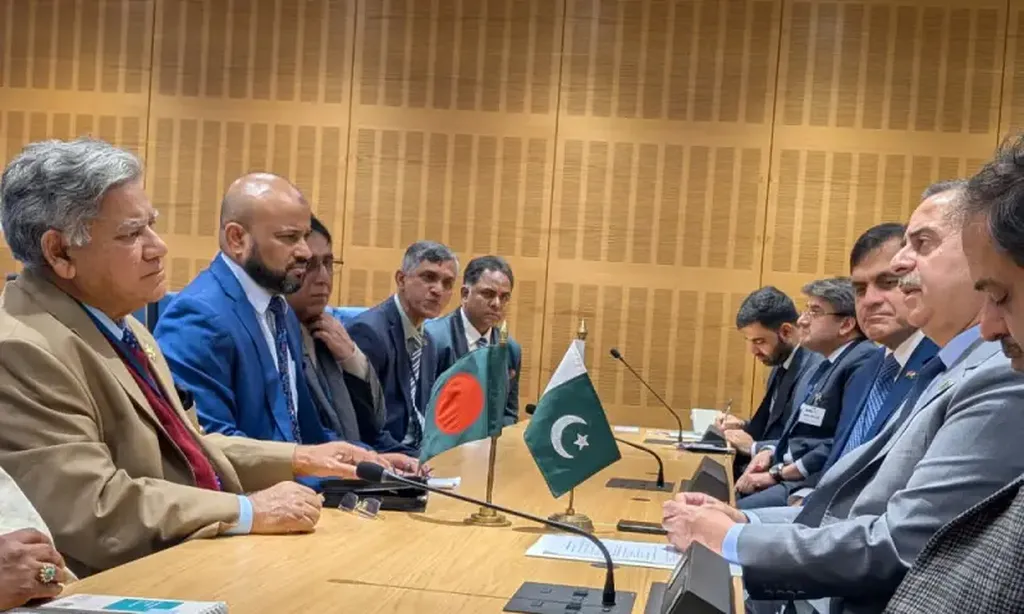Pakistan has thrown down the gauntlet, calling for a new era of regional maritime cooperation. The country unveiled a bold proposal for a “Regional Maritime Dialogue” at the International Maritime Organization (IMO) headquarters in London. The platform aims to unite like-minded nations from the GCC, Central Asia, and Africa to tackle shared maritime challenges head-on.
The initiative, presented by Federal Minister for Maritime Affairs Muhammad Junaid Anwar Chaudhry, didn’t just drop into the void. It landed in front of a high-powered audience—delegations from over 173 countries, including more than 100 maritime ministers. This wasn’t just another policy pitch; it was a strategic play to reshape how regions collaborate on maritime issues.
Chaudhry didn’t mince words. He stressed that the fast-changing global maritime landscape demands new mechanisms to address operational, environmental, regulatory, and technological challenges. The proposed dialogue isn’t just about talking—it’s about action. It will focus on carbon emissions reduction, safety at sea, coordinated search and rescue operations, and navigational safety. Pakistan’s role as the coordinator of NAVAREA IX, covering the Arabian Sea, Gulf waters, and parts of the Indian Ocean, gives it a solid foundation to lead this charge.
But Pakistan isn’t stopping at dialogue. Chaudhry proposed the establishment of a Regional Maritime University and a Regional Maritime Training Institute. These institutions will focus on AI-enabled Standards of Training, Certification, and Watchkeeping (STCW) compliance, ensuring that seafarers from Pakistan and the broader region are ready for the future of shipping. “We want to prepare our workforce for the future of shipping, where technology, environmental compliance, and digital skills will be essential,” Chaudhry noted.
The minister also announced Pakistan’s plan to establish a Pakistan-made terminal as part of its broader maritime modernization drive. Ongoing projects, including the revival of the Gadani shipyard and industrial zone, are being carried out in full compliance with IMO regulations, ensuring sustainability, safety, and international alignment.
Chaudhry reaffirmed Pakistan’s ambition to become a maritime regional leader. The country is committed to deepening cooperation with partners, particularly Saudi Arabia, the UAE, Qatar, other GCC states, Central Asia, and Africa, to build the proposed dialogue platform. “The pinnacle of maritime diplomacy is the IMO, and Pakistan is ready to play a proactive role in shaping regulations that reflect the needs of our region,” he told the gathering.
The minister underlined that Pakistan, like many developing and climate-vulnerable nations, requires stronger representation in global decision-making. “We have faced three major climate-induced floods in recent years, leading to massive financial losses and tragic human casualties,” he added. “Our maritime policies must reflect our vulnerabilities and our priorities,” he said, adding that Pakistan is increasingly focusing on marine biodiversity, marine biology, coastal resilience, and environmental safeguards.
Chaudhry drew inspiration from the success of Small Island Developing States (SIDS), which have formed a strong collective voice within the IMO. He hopes that consensus among regional partners will enable the proposed dialogue to act as a unified voice on key maritime issues at global forums.
Pakistan’s proposal isn’t just about creating another talking shop. It’s a call to arms for regional cooperation, technological advancement, and environmental stewardship. If successful, this dialogue could become a powerful force in shaping global maritime policy, ensuring that the voices of developing nations are heard loud and clear. The maritime world is watching—will this initiative set a new course for regional collaboration, or will it hit the rocks of political and logistical challenges?

